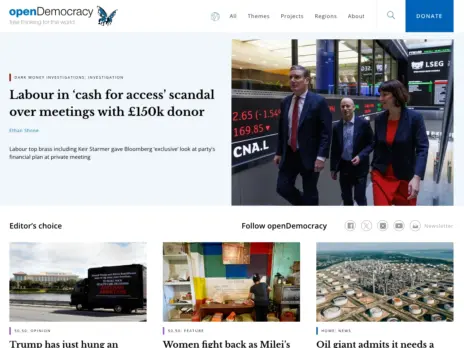
Editors need to consider carefully whether they should put links to stories about sexual offences on to their social media websites because of the risk that the material could lead to victims being identified, the Independent Press Standards Organisation has warned.
While the Dunfermline Press had not breached the Editors' Code of Practice, there was a risk that a link on social media could create a forum for speculation about the identity of a victim or alleged victim of a sexual offence, the regulator said.
It gave the warning as it rejected a complaint from an un-named woman that the Dunfermline Press breached clauses 7 and 11 of the Code, covering children in sex cases and victims of sexual assault, in an article published online and in print in April which reported that an individual had been charged with sexual offences against a child.
The woman was concerned that the article contained details which would contribute to identification of the alleged victim.
She also noted that the article was posted on the publication's Facebook page, where it could be commented on by Facebook users, saying that this was irresponsible, and that the newspaper had exposed the child to the danger of identification.
In fact an individual had posted on his Facebook page a story – from a source not regulated by IPSO – which contained similar information, and the child had been identified by commenters.
The newspaper said it took legal advice before publishing the print article, and did not consider that any of the information included in either version could have led to the identification of the child.
It also noted that the reporting of such cases was in the public interest.
It said it was first aware of the concerns when it was contacted by an individual, who it turned out was the complainant, expressing concern about the comments below the story on its Facebook page. The news editor had then reviewed these comments, and had not found any that were likely to contribute to identifying the alleged victim.
But the article was deleted from Facebook as a gesture of goodwill.
The newspaper said it could not be held responsible for comments posted by an individual on his personal Facebook page about an article published by another news organisation.
IPISO's complaints committee acknowledged the tension between the principle of open justice and the protection of children, enshrined within the Editors' Code.
In this case, the article had not included details which would contribute to identifying the alleged victim. There was no breach of Clause 7 or Clause 11.
The newspaper, it said, was not responsible for comments made identifying the child on social media, which were posted on an individual's unmoderated page and referred to a different article, although it included substantially similar material.
It went on: "Nonetheless, the committee took this opportunity to draw to editors' attention the need for care in such cases to avoid creating a forum for speculation as to the victim's identity.
"While editors are not in a position to constrain the circulation of links to stories and commentary on them hosted on third-party websites, consideration should be given to whether stories involving victims of sexual assault can safely be published on publications' social media sites – particularly where they will be open to comments."
Email pged@pressgazette.co.uk to point out mistakes, provide story tips or send in a letter for publication on our "Letters Page" blog






